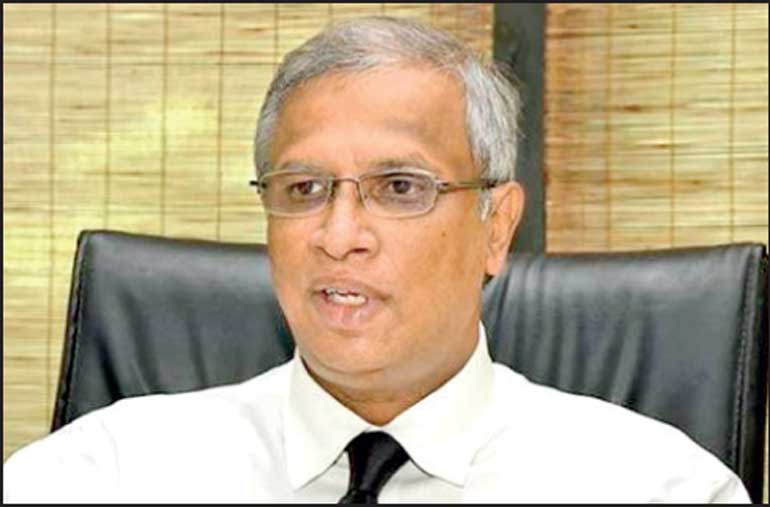Tuesday Feb 24, 2026
Tuesday Feb 24, 2026
Friday, 16 February 2024 00:20 - - {{hitsCtrl.values.hits}}

TNA MP M.A. Sumanthiran
Tamil National Alliance (TNA) MP M.A. Sumanthiran filed a Fundamental Rights (FRs) petition against the certification of the Online Safety Act No. 9 of 2024 by Speaker Mahinda Yapa Abeywardena on 1 February.
The petition has named the Speaker and Attorney General Sanjay Rajaratnam as the respondents.
The petition, filed through Sinnadurai Sundaralingam and Balendra Attorneys-at-Law asserts that the petitioner is initiating this action both personally and in the interest of the public. It notes that its primary aim is to uphold the rule of law and the Constitution, acknowledged as the paramount legal authority, while also safeguarding the fundamental rights of the country’s citizens. Sumanthiran contended that the Act, purportedly certified by the Speaker of Parliament, was passed in contravention of constitutional provisions.
He has highlighted several disparities between the Act and the Supreme Court’s ruling, which outlined particular amendments necessary for adherence. According to the petitioner, despite the Court’s instructions, the Act allegedly does not incorporate the mandated amendments. The petitioner argues that the Speaker’s certification, reportedly relying on advice from the Attorney General (AG), lacked validity and violated the Constitution.
Sumanthiran maintains that the Act’s passage and certification without compliance with the Supreme Court’s directives violates fundamental rights guaranteed under Articles 12(1) and 41 of the Constitution on equality before the law and the right to equality and freedom from discrimination.
Accordingly, the petitioner has requested the court to declare that the fundamental rights guaranteed to the petitioner and the citizens of Sri Lanka by Articles 12(1) and 14 of the Constitution have been infringed by the first respondent’s explicit endorsement of the Online Security Act No. 9 of 2024.
The petitioner is additionally seeking a declaration that the second respondent has violated the fundamental rights guaranteed to the petitioner and the citizens of Sri Lanka by Articles 12(1) and 14 of the Constitution due to the second respondent’s failure to advise the first respondent and Parliament.